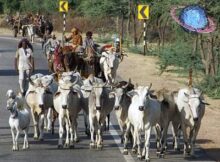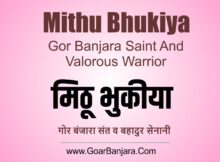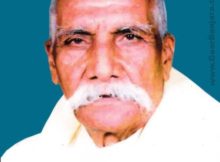Samrat Vikramaditya Hem Chandra the Great alias Hemu Bhukiya
(also known ,the last Raja Vikramaditya,the last Hindu King,the Napoleon of India ) (Vijayadashmi1501 – 5 November 1556)
Vikramaditya was known Hindu(Gor Clan) as Emperor of India during the fifteenth century AD, according to well known pandit Rahul Sanskrutayan…
His real name was Hemsangh Sangramsangh Rathod Bhukiya Bañjara,he came to thrown on 7th October 1556 period (pathan)were vying for power in the region.Born in a humble family, Hemu rose to become Chief of the Army and prime Minister to Adil Shah Suriof theSuri Dynasty. He fought Afghan rebels across North India from the Punjab to Bengal and the Mughal forces of Akbarand Humayunin AgraandDelhi,winning 22 consecutive battles.Hemu acceded to the throne of Delhi on 7 October 1556, assuming the title of “Vikramaditya” that had been adopted by many Hindu kings since vedic times. His rajyabhishek(coronation) as Samrat was held atPurana Qilain Delhi. Hemu re-established the native Hindu (Gor Clan)rule (albeit for a short duration) in North India, after over 350 years of Muslim(Turkic and Mughal) rule. Some historians say that this rule was on the pattern of astrong Hindu state prevailing in South India for more than three centuries, known as ‘Vijaynagar Empire’.Hemu struck coins bearing his title.Early life contemporary accounts of Hemu’s early life are fragmentary, due to his humble background, and often biased, because they were written by Mughal historians such as Bada’uniandAbu’l-Fazlwho were employed by Hemu’s rival,Akbar. Modern historians differ on his family’s ancestral home and caste, and his place and year of birth. What is generally accepted is that he was born in a Gor clan Bhukiya family of limited means, and that he spent his childhood in the town of Rewari, inGadhi Bolani theMewatregion, south-west ofDelhi. His father Sangramsagh, was spiritually minded, a follower ofHith Harivansh, and frequently absent from home while touring to spread Harivansh’s teachings. Due to his family’s financial condition, Hemu at a young age started working as a tradesman, either as a green-grocer or salt selling saltpeter.Social environment hem Chandra Vikramaditya on horse India was Historians on Hemu’s life according to Sarkar and Datta, Hemu assumed thetitle of Vikramaditya or Vikramadity (Sarkar and Datta, 56). But Michael Edwardes writes that Hemu”declared himself King under the title of Raja Vikramaditya” (Edwardes, 139). Hemu’s proclamation of his being a Raja is very significant. The title of Raja reminds one of the ancient and medieval Indian Hindu Kings. Colonel H.C. Kar comments:[53]”He assumed the title of Vikramaditya. He emerged as a monarch in his own right and the only Hindu to occupy the throne of Delhi during the medieval history of India. Himself a staunch Hindu, he had no disrespect for any religion, Islam or Christianity”. K.K. Bhardwaj writes in “Hemu-Napoleon of Medieval India”[54]that, Babur was a foreign invader and never thought of making India as his home or native landplus the atrocities and cruelties that he inflicted upon the Indian people over which Guru Nanak lamented before the Almighty God in holy books, Hemu undertook upon him as his solemn duty or Dharma being a true patriot to expel the Mughals bag and baggage out of India and liberate the motherland by reviving the ancient glories of Bharat-Varsha and establishing the ‘Hindu Raj’. This was indeed a lofty ideal and he strove hard to achieve it. He deserves the honour of being considered the medieval Samudra Gupta or the medieval Napoleon as he fought and won twenty two battles continuously.John Clark Marshman[55]wrote in 1873, that”Hemu was one of the greatest commanders of the age. He was one and all combined in his personality. As a general of sterling qualities, he displayed great valour in the battlefield and embarked upon wonderful planning and strategies to win twenty two battles he waged against the enemies of the state and won all. As an energetic soldier,he never shrank away from the battlefield and when the fight was most fierce, he did not bother for his personal safety and always fought with his adversaries courageously along with his comrades.This earned him goodwill, affection and praise of his entire heterogeneous army consistingof Afghans, Banjara,Rajputs and various other tribes. He was an outstanding commander and his orders were obeyed by all his troops without grudge and demur”. According to Maheshchand Banjara Fulera..
” भूकीया तू गढपती हेमसंग संग्रामसंग भूकीया,
तू डलेलीपर राज कीदो,
सोना रूपा हीरा मोतीरो नीरछावळ कीदो,
हातीरो दान दीदो बढ़ो तमारी बेल!”
—रावबंशी डाढी कचरोधा
Complied by:Gor Mati Nilesh P Rathod Karamtot Bhukiya









